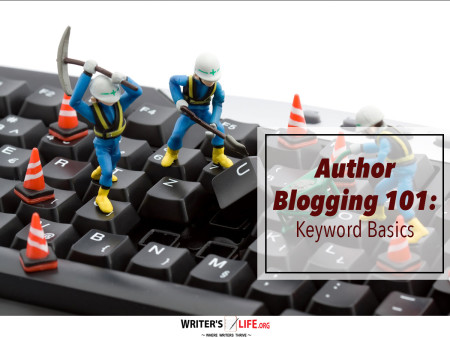- How To Tackle Jealousy In Creative Writing
- Common Submission Mistakes
- How To Stop Your Blog Becoming Boring
- The One Thing Every Successful Writer Has In Common
- How To Make Yourself Aware Of Publishing Scams
- Why Almost ALL Writers Make These Grammar Mistakes At Some Point
- 5 Tips For Authors On How To Deal With Rejection
- Top Mistakes to Avoid When Writing a Novel
- How to Avoid Common New Writer Mistakes
- 10 Mistakes New Fiction Writers Make
10 Legal Questions to Ask Before Publishing Your Book

Publishing a book is an exciting endeavor, but before you leap into the world of ink and paper, there are crucial legal questions for publishing that you should tackle. Navigating the complex world of literary laws can be daunting, but not dealing with these questions upfront could lead to hurdles post-publication. Let's delve into the essential questions every author should answer before releasing their masterpiece.
Why Copyright Is a Critical Publishing Question
Copyright issues are one of the main legal considerations for writers. When you write a book, it's crucial to understand that you automatically own the copyright to your work. But what does that really mean? Essentially, you have the exclusive right to reproduce, distribute, and display your book. However, if your book includes content like quotes or images from other sources, you must ensure you have the appropriate permissions. Ignoring this could lead to legal complications that you certainly want to avoid.
Do You Have the Proper Permissions?
This might be one of the most overlooked yet important legal questions. Authors often wonder if they need permission for a certain component within their book. If your work references trademarked terms, or includes excerpts from other authors, permissions are necessary. The pitfall here is assuming 'fair use' will cover everything. Obtaining the proper licenses not only keeps you legally safe but also fosters good publishing relationships.
What Are Your Trademark Considerations?
Trademarks are vital legal questions for authors when elements of your book involve real company names, logos, or other trademarked items. These elements, if used incorrectly, can lead to potential trademark infringement cases. Always ask: “Is this using a trademark in a permissible way?” Consulting an attorney specializing in intellectual property can clarify any trademark concerns you may have.
How Will Collaborations Affect Your Book?
If you're co-authoring a book or incorporating heavy contributions from others, you need to delineate ownership and profit-sharing upfront. These are critical publishing questions since authorship isn't just about creative rights; it's also about how the rewards are shared. Setting up a partnership agreement can save you from contentious conflicts when your book becomes a bestseller.
Why You Need to Acknowledge Your Sources
An important publishing legal checklist item is citing your sources accurately. It doesn't just apply to nonfiction or academic work; novels require it when based on real events or people. Acknowledging sources prevents possible accusations of plagiarism. Often enforced by checking through rights clearance services, covering this base is like adding a safety net under your literary trapeze.
What Are Your Terms and Conditions?
Before publishing, establish what terms govern your book's use, reproduction, and licensing. This is where understanding important legal questions about royalties, advances, and distribution become essential. Not assessing these terms can lead to unwarranted distribution of your work without adequate compensation.
Public Domain Status: Is It Legally Free to Use?
Many assume if they find something on the Internet, it's free to use. This assumption can land you in hot water. As one of your book's critical publishing questions, it’s crucial to verify whether materials you use are truly in the public domain. If not, obtaining a license will save you from potential legal actions later.
Have You Considered Defamation Risks?
Writers often tread close to defamation without realizing it. The risks are real if your fictional characters too closely resemble real people or events with negative attributes. If your narrative might imply something untrue or damaging, updating your publishing legal concerns checklist with defamation checks is smart.
How Can You Avoid Legal Pitfalls in Publishing?
The best way to tackle these issues is to consult with a legal expert in publishing. However, you can start by educating yourself about the standard legal pitfalls. Take workshops, read legal guides for authors, and familiarize yourself with the conditions specified in your publishing contract. Gobbling up these resources like your favorite snack will empower you with knowledge to avoid common legal pitfalls in publishing.
Who's Liable for What?
Finally, understanding liability is important when dealing with these legal questions for publishing. Knowing what actions might attract legal accountability could keep you out of unnecessary legal disputes. Liability can arise in areas such as unauthorized use of third-party materials, not honoring contractual obligations, and even in lawsuits involving slander or libel.
Mid-post resources: Want to promote your book after it’s published? Check out our Book Marketing Articles. Reading about marketing provides valuable insights, akin to picking up tricks from seasoned explorers. According to Wikipedia, knowing your legal rights as an author is fundamental to safeguarding your interests.
Frequently Asked Questions About Legal Questions for Publishing
Q: What is the most common legal issue faced by authors?
A: The most common legal issue is copyright infringement, usually from unlicensed use of third-party content.
Q: Is it necessary to consult a lawyer before publishing?
A: While not mandatory, consulting a lawyer can preemptively solve potential legal issues related to your book.
Q: Can I use song lyrics in my book?
A: Using song lyrics requires permission, even if only a small portion. Song lyrics often involve multiple copyright holders.
If you're serious about growing your author career, don't miss out on these free tools and templates built specifically for writers. Access all 7 free resources here.



























